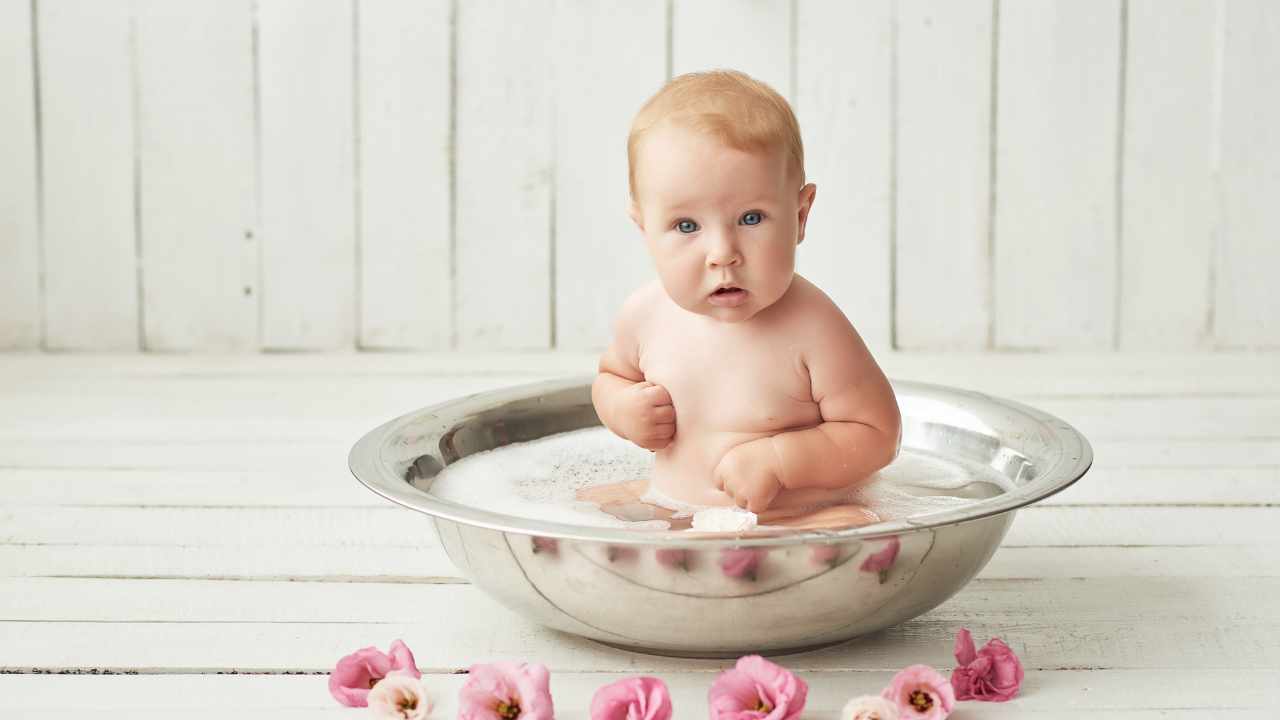Congratulations on your new bundle of joy! As a loving parent, you want nothing but the best for your little one. You want to ensure that they grow up to be healthy, happy and successful individuals. One way to achieve this is by supporting their optimal development every step of the way.
From creating a safe and nurturing environment to providing proper nutrition, there are various ways in which you can support your baby's growth. By understanding the different aspects of their development and taking action accordingly, you can help them thrive both physically and mentally. In this article, we will explore some tips and insights on how to support your baby's optimal development in all domains - physical, cognitive, emotional and nutritional. So let's dive in and explore how you can help your baby reach their full potential!
Creating a Safe and Nurturing Environment
You'll want to make sure your little one is in a safe and loving environment, where they can grow and explore without any worries. Creating a safe and nurturing environment for your baby is crucial for their optimal development. One of the first things you should do is baby proof your home. This means securing cabinets, covering electrical outlets, and installing safety gates at the top and bottom of stairs.
It's also important to have positive interactions with your baby throughout the day. Talk to them often, sing songs, read books, and play games together. These interactions help build a strong bond between you and your baby while also promoting their cognitive development. Remember that babies thrive on love and attention from their caregivers, so make sure to give them plenty of both! With a safe environment and positive interactions, you're setting the foundation for your baby's healthy growth and development.

Encouraging Physical Development
When it comes to encouraging physical development in your baby, there are several subtopics that you should be aware of. Firstly, tummy time and other exercises can help strengthen your baby's core muscles and improve their overall physical abilities. Secondly, choosing the right toys and equipment can also play a significant role in promoting healthy development, so it's important to choose age-appropriate items that encourage movement and exploration. Lastly, encouraging crawling and walking is an essential part of physical development as it helps build coordination and balance skills while also fostering independence.
Tummy Time and Other Exercises
Doing tummy time and other exercises can be incredibly beneficial for your baby's physical development. Not only does it help improve their muscle strength and coordination, but it also leads to smoother crawling and eventually, walking. The benefits of tummy time cannot be overstated - it helps strengthen the neck, shoulders, and core muscles that are essential for a baby's overall growth. Fun exercises like bicycle legs or reaching for toys can also help develop fine motor skills.
It's important to remember that every baby is different, so don't worry if your little one struggles with tummy time at first. With patience and consistent practice, they will eventually become more comfortable with this position. You can start by placing them on a soft surface like a blanket or play mat and gradually increase the amount of time they spend on their stomachs each day. As they get stronger, you can introduce more fun exercises that encourage movement and exploration. In the next section, we'll talk about choosing the right toys and equipment to support your baby's development even further.
Choosing the Right Toys and Equipment
Finding the perfect toys and gear can make playtime more entertaining while giving your little one a boost towards their physical milestones. When choosing toys and equipment, it's important to consider toy safety and age-appropriate equipment. Make sure the toys are free from any choking hazards, toxic materials, or sharp edges that may cause harm to your baby.

Toys and equipment should also be appropriate for your baby's current developmental stage. For example, if your child is just starting to sit up on their own, a support pillow or chair can help them strengthen their core muscles. If they're starting to crawl, choose toys that encourage movement such as balls or push-and-pull toys. As they progress towards walking, you can introduce walkers or ride-on toys that provide support while allowing them to practice balance and coordination. With the right selection of toys and equipment, playtime can become an enjoyable learning experience for both you and your little one.
Transitioning into the subsequent section about encouraging crawling and walking - As your baby becomes more active during playtime, you'll want to encourage crawling and walking by providing opportunities for them to practice.
Encouraging Crawling and Walking
You'll soon see your little one spread their wings and take flight, as you guide them towards new adventures by encouraging crawling and walking. Crawling techniques are essential in promoting the development of your baby's muscles, bones, and coordination. Make sure to create a safe space for your baby to crawl around freely. You can also try placing toys or objects just out of reach to motivate them to move forward. Support your baby's efforts by giving them positive reinforcement and praise.
As they start taking their first steps, celebrate their walking milestones with joy and encouragement. Remember that every child develops at their own pace, so don't worry if your little one is not moving as quickly as others. Provide support by holding onto both of their hands while they take small steps or invest in a walker or push toy to help build confidence and balance. Keep in mind that accidents may happen, so always supervise your child closely during this exciting stage of development.

Transition: As you witness your baby's physical growth unfold before your eyes, it's important to remember that supporting cognitive development is just as crucial for overall well-being.
Supporting Cognitive Development
As your little one grows and learns, it is important to support their cognitive development. Play-based learning is a great way to help your baby develop cognitive skills while having fun. You can encourage play-based learning by providing toys that are appropriate for their age and stage of development. For example, soft blocks can help your baby learn about colors, shapes and sizes as they stack them up or knock them down.
Early language exposure is another key factor in supporting cognitive development. Babies who hear more words spoken around them are likely to have larger vocabularies later on. Talk to your baby often, describing the world around you as you go about your day. Sing nursery rhymes or lullabies, read board books with colorful pictures and simple text. These activities can provide valuable early language exposure that will benefit your baby's developing brain.
Now that you know how to support your baby's cognitive development, let's move on to promoting emotional development by creating a strong bond between you and your little one.

Promoting Emotional Development
Promoting emotional development through bonding with your little one is crucial for their overall growth and well-being. Infant attachment is an essential aspect of emotional development and involves the formation of a strong bond between you and your baby. By responding to your baby's needs promptly, you can help foster a secure attachment, which will have long-lasting effects on their socialization skills.
Additionally, providing opportunities for your little one to interact with others will aid in developing socialization skills. Playdates or attending parent-child classes are excellent ways to promote healthy interactions with other children. Engaging in activities that require turn-taking or sharing can also help develop social-emotional intelligence. Remember, every child develops at their own pace; do not compare your child's progress to others'. Instead, focus on creating a positive environment that offers consistency, warmth, and unconditional love.
Ensuring proper nutrition is also fundamental to supporting optimal development in your baby. By providing nutrient-rich foods like fruits and vegetables along with breastmilk or formula (depending on age), you are giving them the necessary tools for healthy growth physically and mentally. Adequate nutrition has been linked to better cognitive functioning and mood regulation in children; therefore, it is vital to prioritize this aspect of care as well.
Providing Proper Nutrition
Making sure your little one is getting the right nutrients they need is crucial for their growth and overall health. Breastfeeding provides significant benefits, including essential nutrients that boost your baby's immune system. The World Health Organization (WHO) recommends exclusive breastfeeding for at least six months, followed by introducing solids along with continued breastfeeding for up to two years or more.

When it comes to introducing solids, it's vital to follow a timeline that considers your baby's readiness and development. Typically, around six months of age is when babies can start eating solid foods. Start with small portions of soft foods like pureed fruits and vegetables before moving on to meats and grains. Always monitor for any allergic reactions or digestive issues before adding new foods to their diet.
As you continue providing proper nutrition for your little one, monitoring their development closely will help ensure that they are thriving every step of the way.
Monitoring Your Baby's Development
It's important to keep a close eye on how your little one is growing and developing, so you can catch any potential issues early on and ensure they're meeting key milestones. As a parent or caregiver, it's crucial to monitor your baby's development from birth until they reach their toddler years. This means tracking progress in areas such as physical growth, cognitive development, language skills, and social-emotional behavior.
One way to monitor your baby's development is by keeping track of baby development milestones. These are specific skills that babies should be able to do at certain ages. For example, by three months old, most babies should be able to lift their heads up while lying on their stomachs. By six months old, they should be able to sit up with support. And by twelve months old, they may take their first steps! Knowing what milestones your child should be hitting will help you determine if they're progressing appropriately or if there might be cause for concern. If you notice that your baby isn't reaching these milestones on time or seems to be lagging behind in one area of development, don't hesitate to talk with your pediatrician about it. Together, you can come up with a plan for supporting your little one's optimal growth and development.

Frequently Asked Questions
How long does it take for a baby to reach their developmental milestones?
Achieving developmental milestones is an essential part of your baby's growth and development. However, the time it takes for them to reach these milestones can vary depending on several factors affecting milestone achievement. Some of these factors include genetics, environment, and nutrition. While most babies achieve their milestones within a particular timeframe, others may experience delays that require early intervention for developmental delays. Early intervention is critical in helping your child catch up with their peers and reach their full potential. As a parent or caregiver, it is crucial to monitor your baby's progress and seek professional help if needed to ensure they thrive every step of the way towards optimal development.
What are some common developmental delays and how can they be addressed?
If your baby is not reaching their developmental milestones, it can be concerning. However, early intervention is key when addressing common developmental delays. Communication strategies are also important to ensure that your child receives the proper care and support they need. Some common delays include difficulty with speech and language development, motor skills, and social skills. As a caregiver, it's important to be proactive in seeking out resources and professionals who can assist you in helping your child reach their fullest potential. Remember to approach these challenges with compassion for both yourself and your little one as you navigate this journey together.
How does a baby's environment impact their development in the long term?
Environmental factors play a crucial role in your baby's brain development and can have long-term effects on their overall well-being. From the air they breathe to the toys they play with, everything around them can impact their growth and development. Providing a safe, nurturing environment is key to ensuring that your baby thrives every step of the way. While it can be overwhelming to think about all the potential hazards, taking small steps like keeping harmful chemicals out of reach and providing age-appropriate toys can make a big difference. By being mindful of your baby's environment, you are setting them up for success in the future.
Can a baby's temperament affect their developmental progress?
Your baby's temperament can play a role in their developmental progress. While nature (genetics) plays a part in your baby's temperament, nurture (environment and experiences) also has an impact. As a parent, there are strategies you can use to support your child's development regardless of their temperament. For example, providing a safe and stimulating environment, responding promptly to your baby's needs, and engaging in interactive play can all promote healthy development. Understanding your baby's unique temperament can also help you tailor your parenting approach to meet their specific needs. By nurturing your baby's strengths and supporting areas where they may struggle, you can help them thrive every step of the way.

What role does socialization play in a baby's overall development?
Imagine a garden with different types of plants. Each one has its own unique characteristics, from their colors to their shapes. Just like these plants, babies also have their own distinct traits that make them who they are. However, socialization plays an important role in the overall development of a child's cognitive skills and emotional intelligence during early childhood. By interacting with others, babies learn how to communicate, express emotions, and build relationships. Socialization helps them understand the world around them and develop a sense of empathy towards others. Therefore, providing opportunities for socialization is crucial in supporting your baby's optimal development.
Conclusion
Congratulations on taking the first step towards supporting your baby's optimal development! By creating a safe and nurturing environment, encouraging physical activity, stimulating cognitive growth, promoting emotional bonding, providing proper nutrition and monitoring their progress along the way - you are helping them thrive every step of the way.
As your child grows and develops, they will achieve many milestones. Each one is precious and unique in its own way. Remember to celebrate these moments but also be patient with yourself as a caregiver. Raising a healthy and happy baby takes time, effort and dedication. By following these guidelines consistently, you can ensure that your little one has the best possible start in life. Congratulations again on being an awesome parent!
.png)





